Sommer 2014
Studienprojekt
Lisa Seiler
Engaging Uncertainty – Landscapes of Nigeria’s Oil Sands: Small scale mining - tool kit
A key emerging resource expected to drive regional development and urbanization in southern Nigeria is the 140 kilometer bitumen, or oil sands, belt that stretches across Edo, Ondo, Ogun, and Lagos states. Estimated by the Nigerian Ministry of Solid Minerals Development to contain 32-47 billion barrels of oil, Nigeria’s reserves of bitumen are the largest in all of Africa. Only recently with improved technology for extraction and declining worldwide reserves of conventional oil has the water and the energy-intensive extraction of oil sands become inevitable.
The belt is situated at the edge of the Niger Delta, an area the United Nations Environment Programme calls “one of the most polluted places on earth”. Criss-crossed with the leaky infrastructure of the oil and gas industry, the delta is a warning of what can happen when extractive industries operate with impunity. The oil sands belt presents an opportunity to take a different approach to the development of an emerging resource - one that strengthens future livelihoods instead of endangering them.
The development of the oil sands is expected to trigger a systematic reshaping of earth across a vast territory accompanied by rapid urbanization. Instead of leaving behind a conflict-scarred terrain like of the Niger Delta, can the industrial infrastructure of oil sands be designed as the backbone of a productive urbanization and livelihoods development strategy? Are there landscape transformations that can be choreographed as part of the excavation, extraction and re-grading of these sites? For example, can tailings ponds support aquaculture or water and transportation development strategically link and shape urbanization? What are mechanisms to build livelihood strategies before, during and after the project timeline? How can the landscape architect choreograph the systematic, rotational extraction process to support livelihoods?
Ondo State, with the highest number and density of bitumen exploration blocks, will serve as the focal point for this studio. The studio is part of a larger research initiative within the ILA focusing on anticipatory landscape practice for resource extraction in emerging economies in sub-Saharan Africa. Experts and organizations on the ground in Nigeria will be brought in to offer their advice and perspectives throughout the studio. Selected products of the studio may be presented to government authorities, NGOs, and local communities.
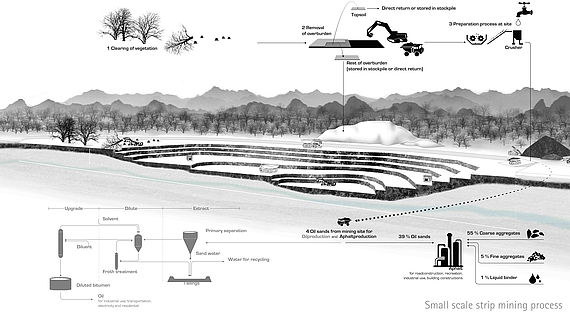
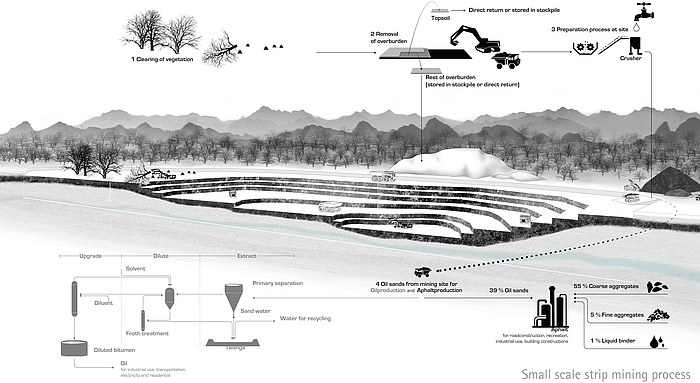
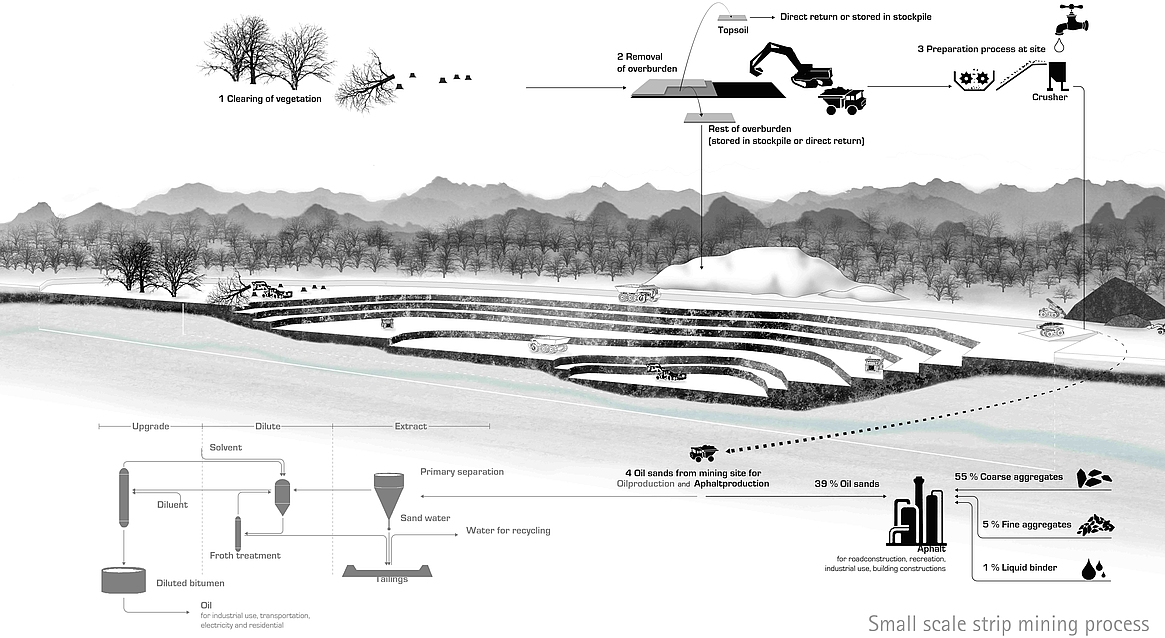 ©
Lisa Seiler
©
Lisa Seiler
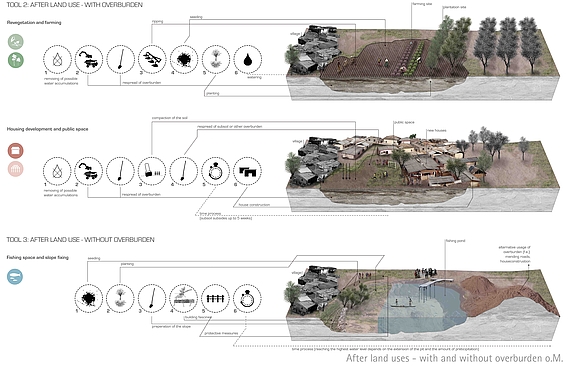
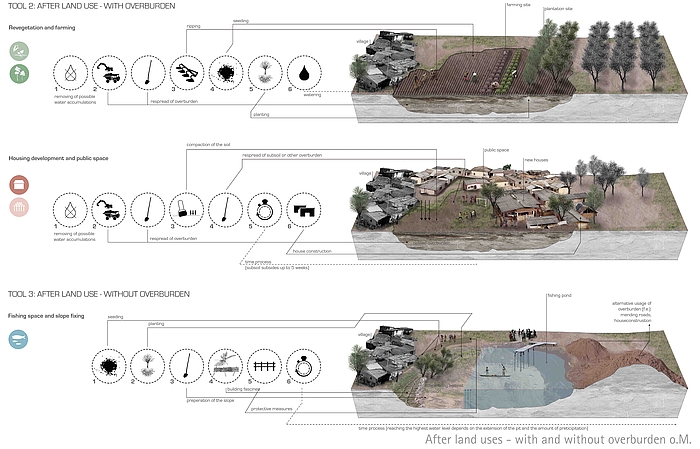
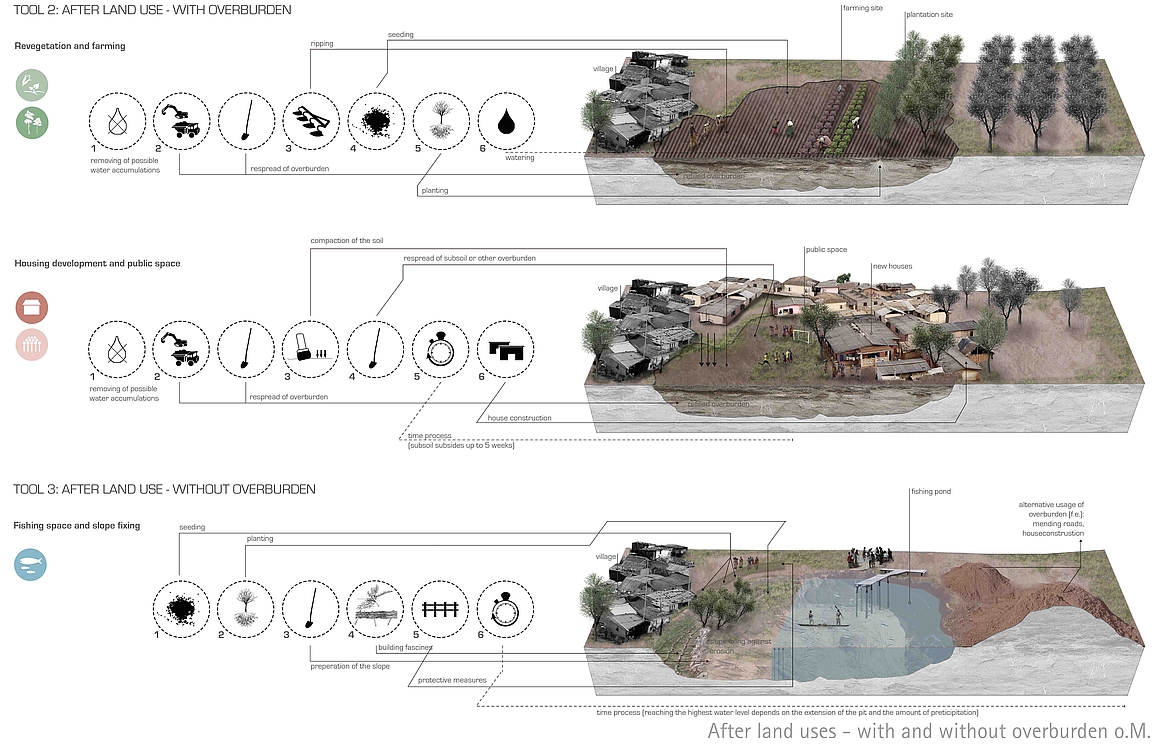 ©
Lisa Seiler
©
Lisa Seiler
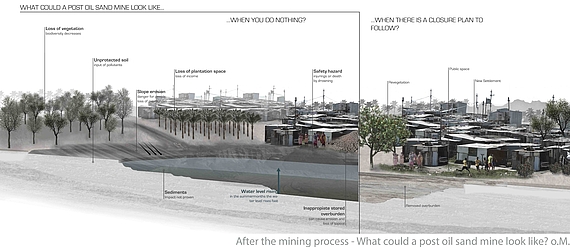
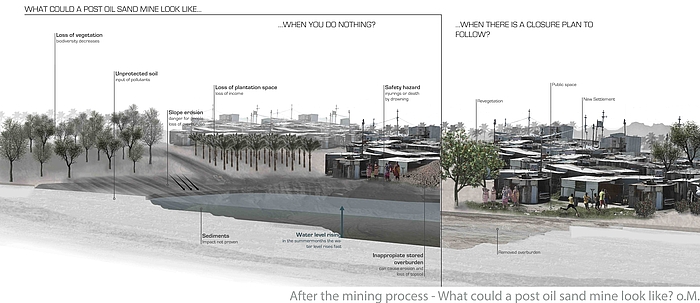
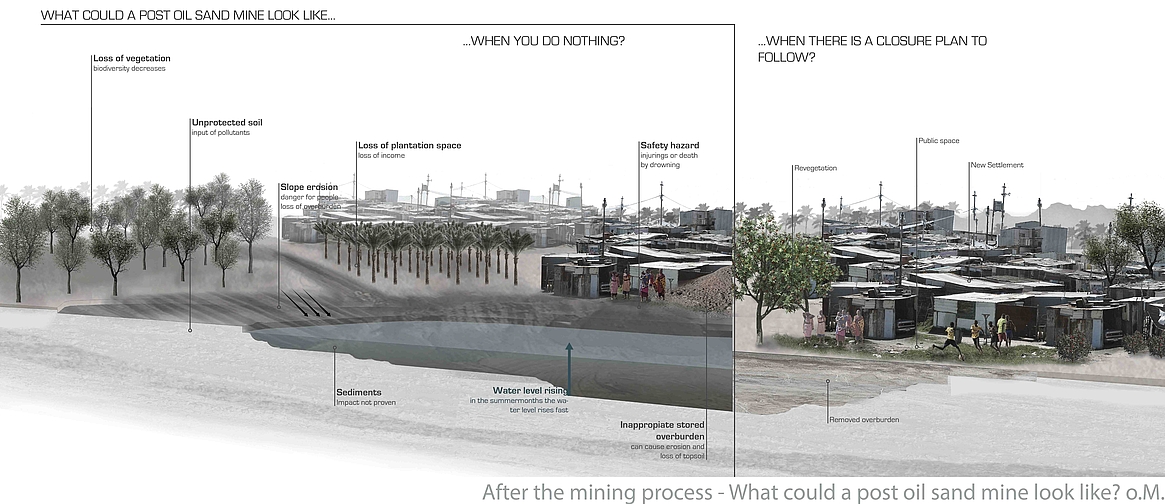 ©
Lisa Seiler
©
Lisa Seiler


